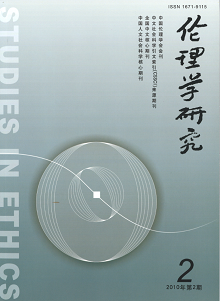|
|
The current status of eco-morality of our children
DAI Feng
2010(2):
49-55.
Eco-moral education of our children is not ideal,while its effect is not obvious in the current from the whole. Our children's eco-moral cognition, eco-moral sentiments and attitudes, eco-moral behavior has not reflected the law of knowledge-love-will-behavior, which are uncertainty. Eco-moral cognition and inner emotional conflicts and collision frequently, eco-moral behavior has not embodied consciousness and self-discipline, a sense of lack of environmental obligations, environmental responsibility to be strengthened and improved. The main reason is its moral cognitive characteristics,age, experience of children and other factors as well as family, school, society's lack of extrinsic environment. Therefore, a "trinity" of eco-moral education of children needs co-operation for schools, parents, social.
|



